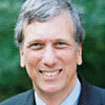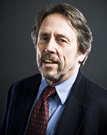

Vol 1, Issue 2 • December 2010
Conversation... and Action
At home and on the road, LISAR in midst of busiest year yet
On July 1, 2010, the Lubar Institute “celebrated” our fifth anniversary. But there was no time for a cake or celebratory pats on the back; we were too busy getting ready to attend the Islamic Society of North America’s annual conference, where LISAR Director Charles Cohen spoke on a panel concerned with “Jewish-Muslim Relations.”
This episode typifies 2010, our busiest year yet—and one that also revealed LISAR’s larger potential and international reach more strikingly than ever.
 This fall alone we hosted a packed-house symposium on the Jerusalem Esplanade (the Temple Mount/al-Haram al-Sharif) with the Oslo Center for Peace and Human Rights. This symposium featured renowned Israeli and Palestinian scholars as well as Kjell Magne Bondevik, founder of the Oslo Center and former Prime Minister of Norway.
This fall alone we hosted a packed-house symposium on the Jerusalem Esplanade (the Temple Mount/al-Haram al-Sharif) with the Oslo Center for Peace and Human Rights. This symposium featured renowned Israeli and Palestinian scholars as well as Kjell Magne Bondevik, founder of the Oslo Center and former Prime Minister of Norway.
 The Institute also hosted Arnold Eisen, Chancellor of the Jewish Theological Seminary, as the Third Annual Rose Thering Fellow. Conversing with small groups of students, faculty, and community members as well as delivering a public lecture and attending a reception at Hillel, Eisen argued forcefully for a Jewish theology of pluralism. Judaism, he insisted, provides rich resources for engaging in interfaith cooperation without watering down its own traditions.
The Institute also hosted Arnold Eisen, Chancellor of the Jewish Theological Seminary, as the Third Annual Rose Thering Fellow. Conversing with small groups of students, faculty, and community members as well as delivering a public lecture and attending a reception at Hillel, Eisen argued forcefully for a Jewish theology of pluralism. Judaism, he insisted, provides rich resources for engaging in interfaith cooperation without watering down its own traditions.
 Two further public lectures followed, one by Aisha Al-Mannai, Dean of Shari’a at Qatar University (see below) and a second by two-time Pulitzer Prize winner Anthony Shadid, who spoke on “The Truths We Tell: Reporting on Faith, War and the Fate of Iraq.” (Shadid photo credit: Lukas Keapproth)
Two further public lectures followed, one by Aisha Al-Mannai, Dean of Shari’a at Qatar University (see below) and a second by two-time Pulitzer Prize winner Anthony Shadid, who spoke on “The Truths We Tell: Reporting on Faith, War and the Fate of Iraq.” (Shadid photo credit: Lukas Keapproth)
The spring is shaping up to be just as full and stimulating. In January, LISAR Director Charles Cohen has been invited to the Big Apple to deliver the lecture “Jews and Muslims in Christian America” at at the Mid-Manhattan Branch of the New York Public Library as part of their Three Faiths exhibit.
LISAR is a contributing sponsor to the public outreach part of the exhibit, entitled The 411 on Faith, which will run interfaith programming in numerous branch libraries. The Institute has acted as a consultant to the project.
On April 28, 2011, we will co-sponsor a first-ever colloquium on neuroscience and the Abrahamic faiths with Professor Richard Davidson and the Center for Investigating Healthy Minds.
And plans are already extending into summer with our annual conference. LISAR is collaborating with the Faculty of Theology at Oxford University on several conferences exploring relationships between Judaism, Christianity, and Islam. The first will take place in Oxford July 26-28, 2011.
Creating a better understanding of the Abrahamic traditions and their interrelationships come only through conversation and
action. LISAR’s active year demonstrates that
we are a guiding force in these sorts of discussions both domestically and abroad.
![]()
 The last few months have witnessed a brutal intensification of antipathy towards American Muslims, signaled nationally by the uproar over the Park51 Islamic Community Center in New York. Wisconsin experienced its own variation on this theme with protests against building a mosque in Sheboygan County, though the County Board did approve the project. This enmity issues from several sources, not the least of which are political opportunism—witness the lowering of media coverage after Election Day—and a fearful ignorance born substantially from unfamiliarity with Muslims in the flesh. As Rabbi Bradley Hirschfield, president of CLAL and a plenary speaker at LISAR’s annual conference in 2008, related to me, opposition to Park51 increased the farther one moved from downtown Manhattan. The most knowledgeable (and most affected) were also the most supportive.
The last few months have witnessed a brutal intensification of antipathy towards American Muslims, signaled nationally by the uproar over the Park51 Islamic Community Center in New York. Wisconsin experienced its own variation on this theme with protests against building a mosque in Sheboygan County, though the County Board did approve the project. This enmity issues from several sources, not the least of which are political opportunism—witness the lowering of media coverage after Election Day—and a fearful ignorance born substantially from unfamiliarity with Muslims in the flesh. As Rabbi Bradley Hirschfield, president of CLAL and a plenary speaker at LISAR’s annual conference in 2008, related to me, opposition to Park51 increased the farther one moved from downtown Manhattan. The most knowledgeable (and most affected) were also the most supportive.
Bringing people together is an important step toward appraising each other’s beliefs and actions more cogently, a responsibility LISAR undertakes in several ways. The Student Forum, led by Assistant Director Ulrich Rosenhagen, and the Community Forum, run by Graduate Fellow Rohany Nayan, encourage people to speak and listen to each other without giving up either their own identities or their critical faculties. The Student Fellows engage themselves and the Institute’s guests; the candor with which they conversed with Dean Aisha Al-Mannai, Dean of Shari’a at Qatar University, demonstrated to themselves—and her—how Muslims can participate as equals with Christians and Jews within an American university. Indeed, the dance of conducting the Institute’s routine operations while simultaneously working around three religious calendars accustoms our staff to interfaith cooperation at the most mundane yet meaningful level. In their small ways, each of these activities helps stabilize our civil society against projecting our fears onto neighbors we have never met.
![]()
LISAR
Fellows
Voice
Eric Ogi,
LISAR Undergraduate Fellow, 2010-11
 More than a hundred students, professors, and community members came out to see Dr. Aisha Al-Mannai, the first female dean of the College of Shari’a and Islamic Studies at Qatar University, speak on “Islam’s View of Other Religions.” Even those without a seat watched from the hallway or sat on the floor!
More than a hundred students, professors, and community members came out to see Dr. Aisha Al-Mannai, the first female dean of the College of Shari’a and Islamic Studies at Qatar University, speak on “Islam’s View of Other Religions.” Even those without a seat watched from the hallway or sat on the floor!
Using the Hadith, Qur’an, and Shar’ia, Al-Mannai painted a picture of Islam as, first and foremost, a religion of peace, and essentially antithetical to what many of us hear on the evening news. This is to hold true particularly for Muslim-Jewish and Muslim-Christian relations. As people left, it was exciting to overhear many excited voices wanting to continue the conversation and learn more.
For LISAR staff and fellows, Dean Al-Mannai’s visit also included a private meeting. This only seemed fitting, since Al-Mannai, herself, is a founding member of an interfaith organization in Qatar. While she again presented Islam as a religion of peace, much of the meeting consisted of her asking us questions about our experiences as LISAR fellows and undergrads. One major difference between our experiences and hers, we learned, was that we study religion from a non-sectarian approach, while this does not seem to be an important qualification in Qatar. Our involvement with LISAR, however, enables us to enter a diverse community wherein we can explore more of the flesh and bones of our faiths while seeking mutual understanding.
Our lecture and meeting with Dean Al-Mannai once again left all of us thankful for LISAR and the rare experiences we continue to have as fellows.
![]()
 As you are making decisions regarding year-end charitable gifts, please consider joining generous donors like Keith and Jane Nosbusch of Mecquon, Wisconsin, whose recent gift to LISAR has allowed our Community Forum to flourish this academic year.
As you are making decisions regarding year-end charitable gifts, please consider joining generous donors like Keith and Jane Nosbusch of Mecquon, Wisconsin, whose recent gift to LISAR has allowed our Community Forum to flourish this academic year.
All contributions to the Institute offer the opportunity to participate in an unparalled effort: the bringing together of Muslim, Jewish and Christian students, faculty and community members to share ideas, learn about other faiths and increase understanding of their own. Even the smallest gift enables LISAR to do something we could not otherwise accomplish. You may wish to visit our Web site to examine some examples of what levels of donation may do, but the real list of giving opportunities is endless.
The campaign for LISAR, like the Institute itself, is unique; it could happen only at a public institution with a long tradition of civic involvement like UW- Madison. We invite you to become a part of this unprecedented enterprise.
You can make a gift online, or for assistance in making a gift by mail, or to discuss further giving opportunities, please contact our UW Foundation representative:
Stephen Wald, Director of Development
College of Letters and Science
University of Wisconsin Foundation
608-263-2202 (office) 608-287-6480 (cell)
stephen.wald@supportuw.org
